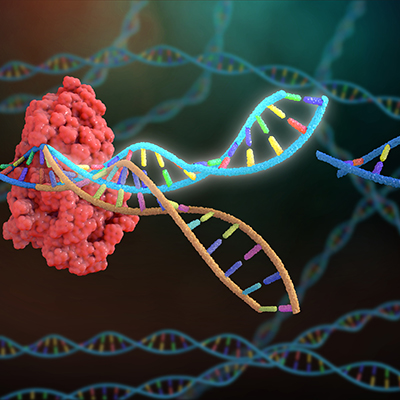 CRISPR reveals way to enhance the function, persistence of CAR T-cell therapies
CRISPR reveals way to enhance the function, persistence of CAR T-cell therapies
The use of CRISPR knockout screens have uncovered a new regulator of immunity that could enhance the function and persistence of anticancer T-cell therapies, according to a study published on August 24 in the journal Nature. Read More
 CRISPR-Cas9 gene editing can give rise to cell toxicity, genomic instability: study
CRISPR-Cas9 gene editing can give rise to cell toxicity, genomic instability: study
Gene editing using CRISPR-Cas9 can lead to cell toxicity and genome instability depending on the targeted spot of the human genome, according to a new study by researchers at the Institute for Research in Biomedicine Barcelona. Read More
 Linus survey finds top two techniques or applications in life sciences R&D
Linus survey finds top two techniques or applications in life sciences R&D
A new survey of scientists finds that the top two techniques or applications in life sciences research and development (R&D) are CRISPR/cell-line engineering and artificial intelligence/machine learning-enabled bioinformatics when it comes to driving scientific advancements. Read More
 CRISPR-based study identifies lung proteins that promote, protect against SARS-CoV-2 infections
CRISPR-based study identifies lung proteins that promote, protect against SARS-CoV-2 infections
A study led by University of California, Berkeley researchers has identified specific proteins within the human body that can either promote SARS-CoV-2 infections or protect against them, a discovery they contend could lead to new antiviral therapies. Read More
 ARM, NIIMBL offer best practices, standards for cell therapy manufacturing challenges
ARM, NIIMBL offer best practices, standards for cell therapy manufacturing challenges
The Alliance for Regenerative Medicine (ARM) and the National Institute for Innovation in Manufacturing BioPharmaceuticals (NIIMBL) have released best practices and a standard methodology intended to assist the cell-based therapy field with its ongoing manufacturing challenges. Read More
 New DNA editing tool could enable more personalized cell therapies
New DNA editing tool could enable more personalized cell therapies
University of Minnesota, Twin Cities researchers have developed a new tool to predict and customize the rate of a type of DNA editing called site-specific recombination, offering the potential for more personalized cell therapies. Read More
 Study shows potential of CRISPR-Cas9 tools for synthetic gene control, cellular engineering
Study shows potential of CRISPR-Cas9 tools for synthetic gene control, cellular engineering
Rice University researchers were able to use deactivated Cas9 (dCas9) proteins to target key segments of the human genome to synthetically trigger the transcription of human genes. Using dCas9 proteins, researchers have revealed important details about human promoters and enhancers. Read More
 CRISPR reveals interconnected map of immune feedback loops, regulatory networks
CRISPR reveals interconnected map of immune feedback loops, regulatory networks
The disruption of thousands of genes using CRISPR-Cas9 gene editing has revealed a map of how human immune cells function. The resulting map could reveal the collections of genes that need to function properly to prevent immune diseases. Read More
 Large DNA insertions in CRISPR-edited cells could increase cancer risk: study
Large DNA insertions in CRISPR-edited cells could increase cancer risk: study
CRISPR-Cas9 can cause large rearrangements of DNA through retrotransposition to theoretically trigger tumor development, according to a paper published in Nature Communications. Read More
 Plant-microbe biology study uncovers trigger for tumor growth in humans
Plant-microbe biology study uncovers trigger for tumor growth in humans
Targeting the plasminogen-apple-nematode domain can block cell proliferation, pointing to the potential to treat certain cancers, according to a paper published in the journal Communications Biology. Read More
Conferences
Science Briefs
Member Rewards
Earn points for contributing to market research. Redeem your points for merchandise, travel, or even to help your favorite charity.
Research Topics
Interact with an engaged, global community of your peers who come together to discuss their work and opportunities.
Connect
Tweets by @ScienceBoard






